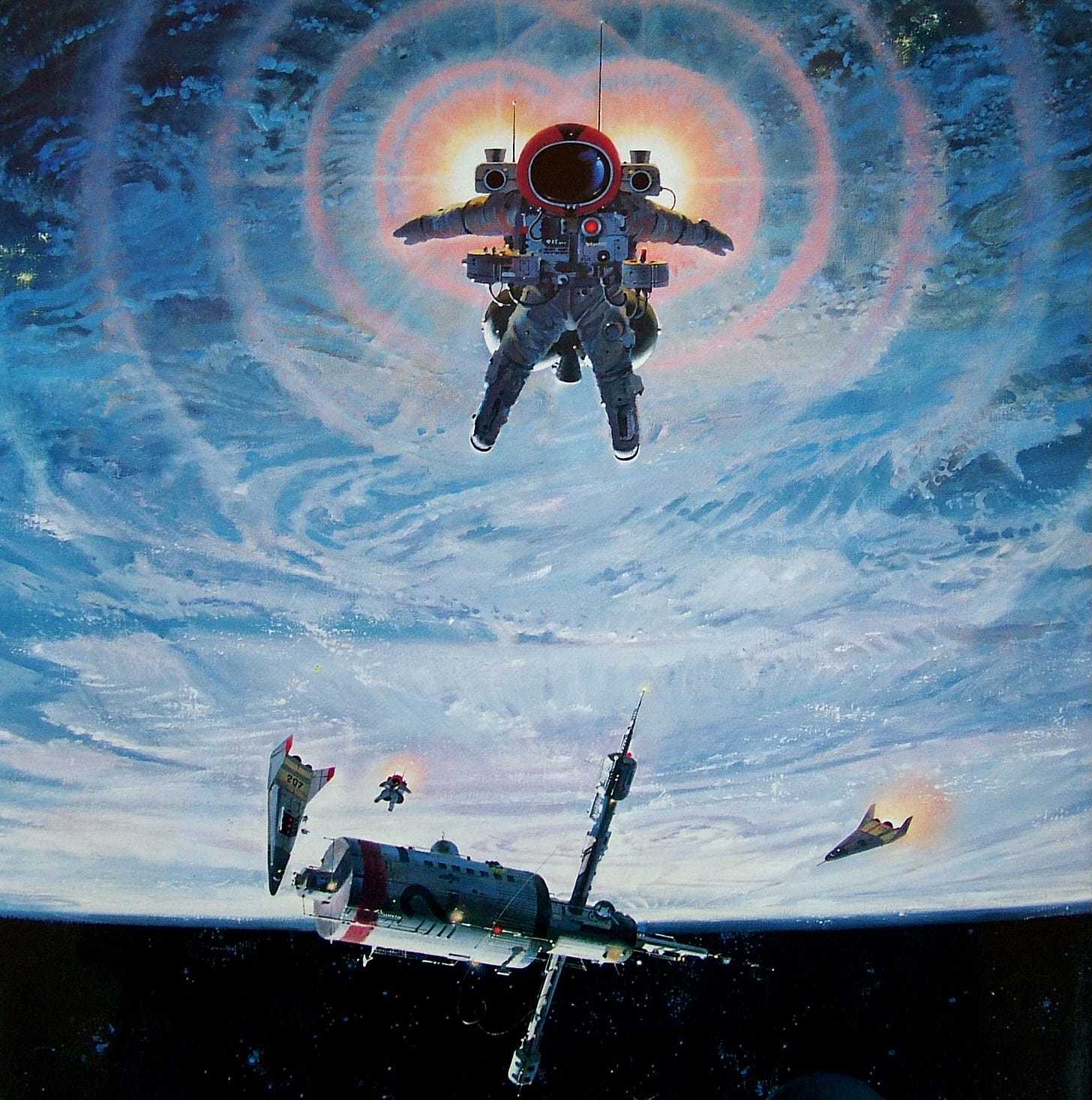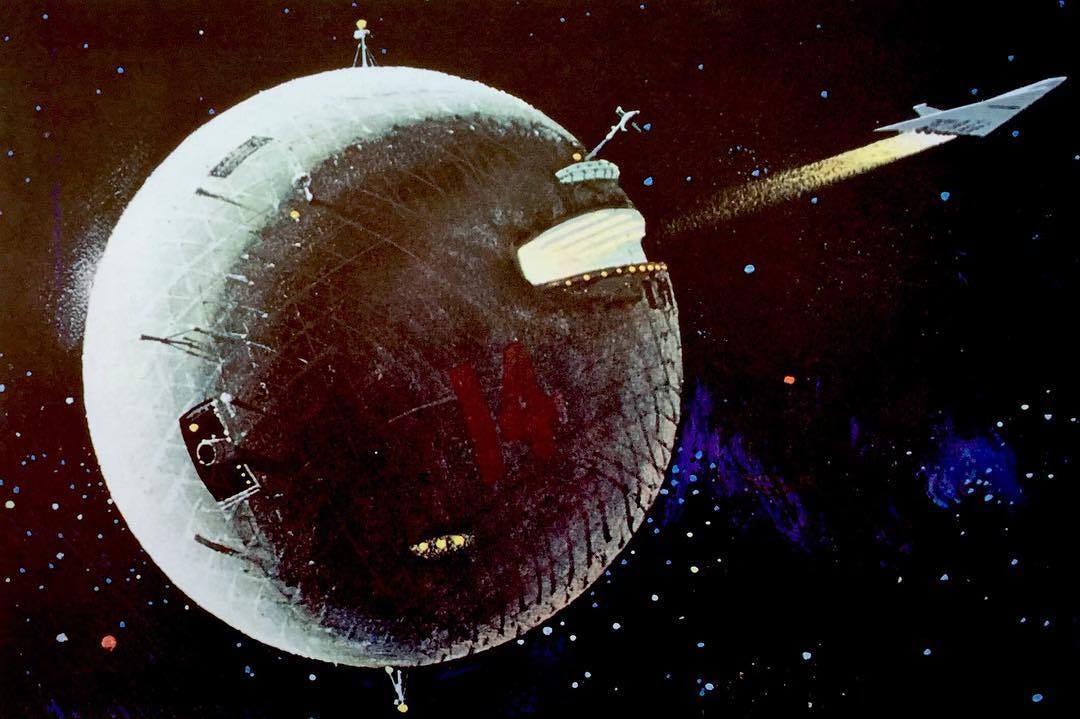What Big Thing Are We Getting Wrong About the Future?
Lessons from a Techno-Optimist's Unexpected Pessimism
I have a new piece up at Discourse inspired by a gem of a book that I found thanks to a recommendation by Jason Crawford.
I recently tracked down a copy of a fascinating old book, Our World in Space, by Isaac Asimov with illustrations by Robert McCall. Published in 1974, five years after the moon landing, it wonderfully captures a moment of exuberant excitement about the achievements of space exploration….
Asimov was a writer of classic science fiction (his Foundation series was recently brought to the screen) and a prolific popularizer of science. McCall was an artist known for his portrayals of space exploration—real NASA missions as well as imagined future technology—and for the giant mural, “The Prologue and the Promise,” that he created for Disney’s Horizons pavilion at EPCOT, which set a standard for optimistic portrayals of the future. You can see his visual influence in “2001: A Space Odyssey” and the Star Trek franchise. And his 1974 illustration of a spherical space station just might have had an influence on another big science fiction franchise.
I have used “The Prologue and the Promise” as an illustration several times before to sum up the attitude of techno-optimism. McCall died in 2010, but there is a magnificent website with high-quality images of his work. Go ahead, poke around there for a bit. I’ll be waiting here.
Oh, and did McCall influence Star Wars? I haven’t been able to find direct evidence, but the timeline works out, and, well, you tell me what this McCall illustration might have inspired.
But all of this is not primarily what my article is about. My article was touched off by a passage from Asimov’s text that I found jarringly incongruous.
In one respect, a Moon colony, or any colony or combination of colonies outside the Earth, cannot help us. No one of them, nor all of them together, can help us solve our population dilemma. If anyone thinks that the important reason for exploring space is to find outlets for our expanding population, let him think again....
We must, of our own determination, and here on Earth, halt the population increase by balancing the birth and death rates.... That leaves us with the necessity of decreasing the birth rate....
Remember that, above all.
The thing that jumps out most is that this was completely wrong, and fifty years later, we’re worrying that we have too little population growth. But the overpopulation hysteria was so completely dominant in 1974 that Asimov felt compelled to stick this bit of Malthusian pessimism right in the middle of a book that is in all other respects wildly optimistic.
I go on to ask what other idea we’re getting similarly wrong today. My answer is global warming, which even pro-progress, techno-optimist writers will almost universally append with a similar warning: “Remember that, above all.” I go on to examine why overpopulation turned out to be a bust and to apply those lessons to global warming. The central lesson is this:
Asimov—who had just predicted that abundant energy from fusion reactors (always 30 years in the future) would enable us to provide all the resources for hundreds of millions of people to live on the moon—could not imagine humans being able to support another four billion people in the much more favorable conditions on Earth….
The 20th-century economist Julian Simon famously argued that the human mind is the “ultimate resource.” Ingenuity and innovation allow us to tap into far more new resources than humans can use up—so long as people are free to put these innovations into action. The bursting of the overpopulation hysteria proved him right, but those looking for a new reason for pessimism, and a new justification for restrictive policies, simply fell back onto global warming. Many of them still reject the possibility that the same ultimate resource that allowed us to prosper with a growing population could also allow us to thrive even if the climate is changing.
All of this is distracting us from building the hyper-technological future Asimov and McCall envisioned.
Read the whole thing.
Speaking of techno-optimism, there are a few links I’ve been holding onto about some recent progress. Let’s start with the kind that would have inspired Asimov and McCall.





